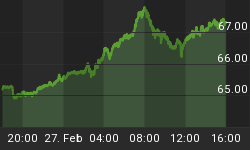Economic statastics released this week show that the economy continued to weaken even before the attack on September 11th. The Index of Leading Indicators fell in August for the first time since March of this year, ending a four-month recovery in the index. It also confirms that the economy was weakening before the attack in New York City and Washington D.C. Interestingly, the only positive component to the leading index was money supply. Also, consumer confidence fell to a six-year low. While it clearly indicates that the economy is stating to take its toll on the consumer, I hate to read too much into the consumer confidence numbers this month. Some of the surveys were filled out before the attack and some afterward. Everyone knows that the consumer is the last pillar standing in the economy and this does not bode well for the near future.
Most economists are conceding that the U.S. economy will slip into recession, but they also think that because of the all the government stimulus handed out after the attack two weeks ago the recovery will be much steeper than previously. But, Stephen Roach, economist for Morgan Stanley, cautions, "As a seasoned team of economist, we are quite wary of using past experience and old cyclical models as guides for what lies ahead." He cites the "excess capacity, an over-extended consumer, and a massive account deficit" as reasons that the economy will not recover as strongly as many of his colleagues are forecasting.
President Bush signed a $15 billion bailout package for the airline industry. While I understand the necessity for some sort of assistance, I'm worried about the standard it will set and where it will? Will travel agents be bailed out? Hotels? Car rental companies? Most airlines have announced plans to reduce capacity by 20%. The hardest hit will be those in small to medium sized towns that will lose a large percentage of flights or in many cases all flight service. J.P. Morgan analyst Chris Avery does not think that the airlines will be able to cut costs as fast as revenues decline and that some airlines will have to declare bankruptcy anyway. The bailout package only delays the inevitable.
Yellow, the largest U.S. trucking company, said shipments did not pick up after airlines were grounded. Yesterday, Yellow announced that it will earn only $0.20 to $0.25, about half of what Wall Street was expecting and down about 40% from last year. The shortfall is due to companies shipping fewer goods. More proof that the economy is slipping into recession.
Purchases of big-ticket items are being put on hold. Jeffery Stone, CEO of Tweeter Home Entertainment, said, "After the events of Sept. 11, our business fell apart." Before the attack Tweeter indicated that sales were already weak. Same store sales were lower in the first week of September after being flat for the previous two months. Tweeter did say that several customers have decided to buy a new TV since they plan on staying home more and not going out for entertainment.
The auto sector continues to suffer and like the airlines and travel industry could feel a significant slowdown due to the attack. A recent Merrill Lynch report indicates that it will likely get much worse before it gets better. John Casesa, Merrill's auto analyst, wrote that during the downturn from the 1986 cycle peak demand fell 23% to a trough in 1991 of 13.4 million units. A similar downturn would result in a trough of 13.4 million units from a peak of 17.4 million units sold last year. This would be far below the 15 million units required for the Big Three and several of the suppliers to breakeven. Merrill previously forecasted 15.9 million units sold next year and will be lowing these estimates in the near future.
Yesterday, General Motors announced that it will be quitting production of the Camaro and Firebird models and closing the Canadian plant where the models are made. Compounding demand problems is the financial mismanagement by several companies. Throughout the boom the automakers continued to buyback stock and rollout expensive marketing programs that drained cash reserves.
Manufactures may see a small uptick in orders in the near future as companies begin to stockpile inventory. Due to just-in-time inventory management techniques, after the attack two weeks ago several manufactures were without parts. There is a good chance that companies will begin to stockpile an extra couple of days of inventory in case there are additional disruptions in the supply chain. However, if companies permanently change their operations to carry more inventory there will an additional drag on companies as they would have more working capital tied up.
Semiconductor business continues to languish. August's book-to-bill ratio fell to 0.61 from July's 0.63 with shipments holding steady and booking declining by 2.5%. This reversed a three-month trend of stronger orders. There is little doubt that business has gotten worse since the end of August. In fact, George Scalise, president of the Semiconductor Industry Association (SIA), said that the attack will likely cause chip sales to decline further in the coming months. Previously, the SIA expected chip sales to post 5% sequentially growth in the fourth quarter. The SIA thinks the attack will cause fourth quarter growth be as small as 1%. Remember the SIA has always been over-optimistic.
This week there was more bad news for the semiconductor equipment makers. Taiwan Semiconductor, the world's largest foundry, announced that it would be cutting back on its capital expenditure plans for 2001, and 2002. Today, AMD announced it would close two plants and fire 2,300 workers. And lastly, Micron reported earnings yesterday that were way below forecasts. Results were so poor for Micron that its revenue for the quarter was below its net income in the year ago period.















